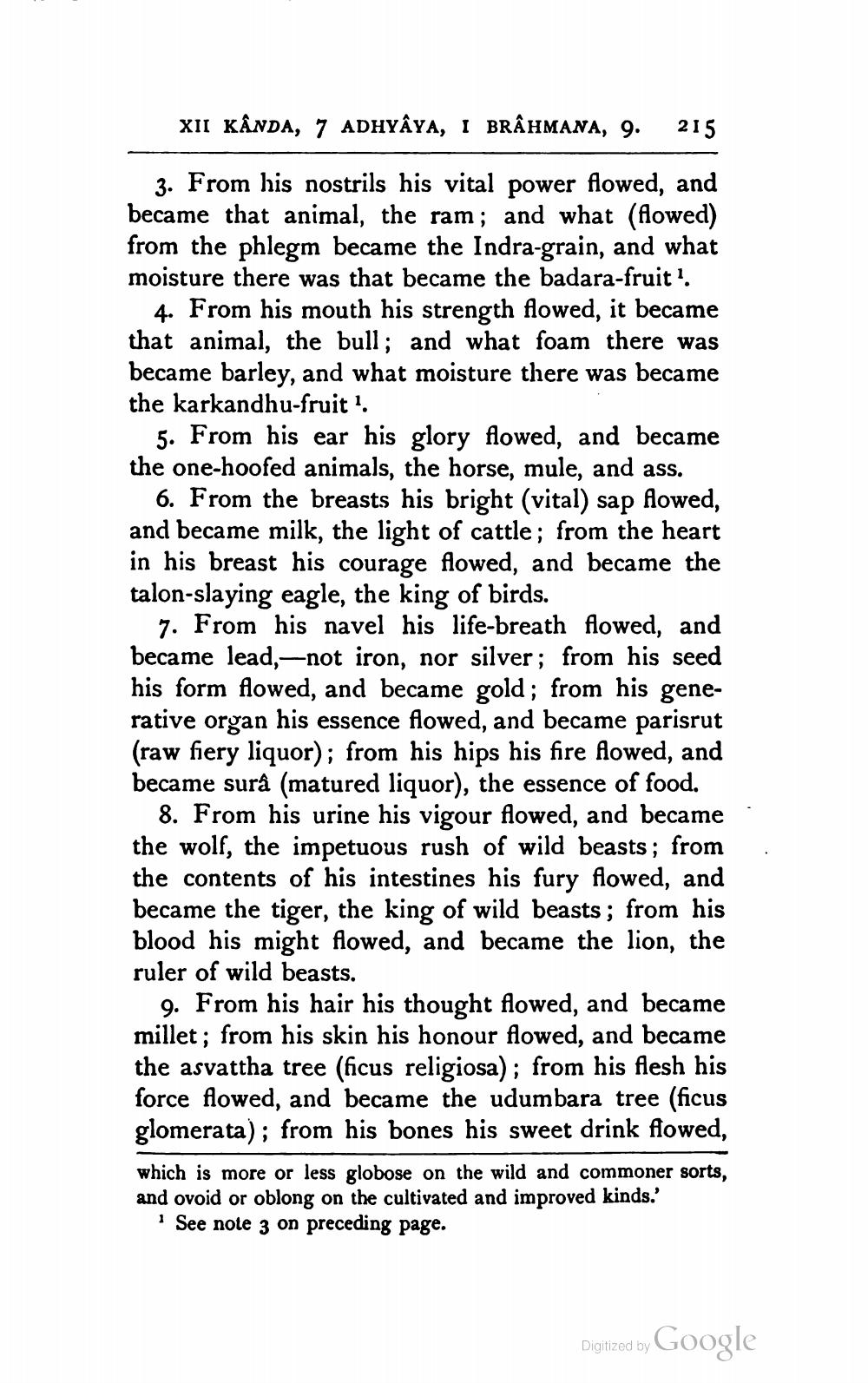________________
XII KÂNDA, 7 ADHYAYA, I BRÂHMANA, 9. 215
3. From his nostrils his vital power flowed, and became that animal, the ram; and what (flowed) from the phlegm became the Indra-grain, and what moisture there was that became the badara-fruit'.
4. From his mouth his strength flowed, it became that animal, the bull; and what foam there was became barley, and what moisture there was became the karkandhu-fruit
5. From his ear his glory flowed, and became the one-hoofed animals, the horse, mule, and ass.
6. From the breasts his bright (vital) sap Aowed, and became milk, the light of cattle; from the heart in his breast his courage flowed, and became the talon-slaying eagle, the king of birds.
7. From his navel his life-breath flowed, and became lead,—not iron, nor silver; from his seed his form flowed, and became gold; from his generative organ his essence flowed, and became parisrut (raw fiery liquor); from his hips his fire Aowed, and became surå (matured liquor), the essence of food.
8. From his urine his vigour flowed, and became the wolf, the impetuous rush of wild beasts; from the contents of his intestines his fury flowed, and became the tiger, the king of wild beasts; from his blood his might flowed, and became the lion, the ruler of wild beasts.
9. From his hair his thought flowed, and became millet; from his skin his honour flowed, and became the asvattha tree (ficus religiosa); from his flesh his force flowed, and became the udumbara tree (ficus glomerata); from his bones his sweet drink flowed, which is more or less globose on the wild and commoner sorts, and ovoid or oblong on the cultivated and improved kinds.'
· See note 3 on preceding page.
Digitized by Google




